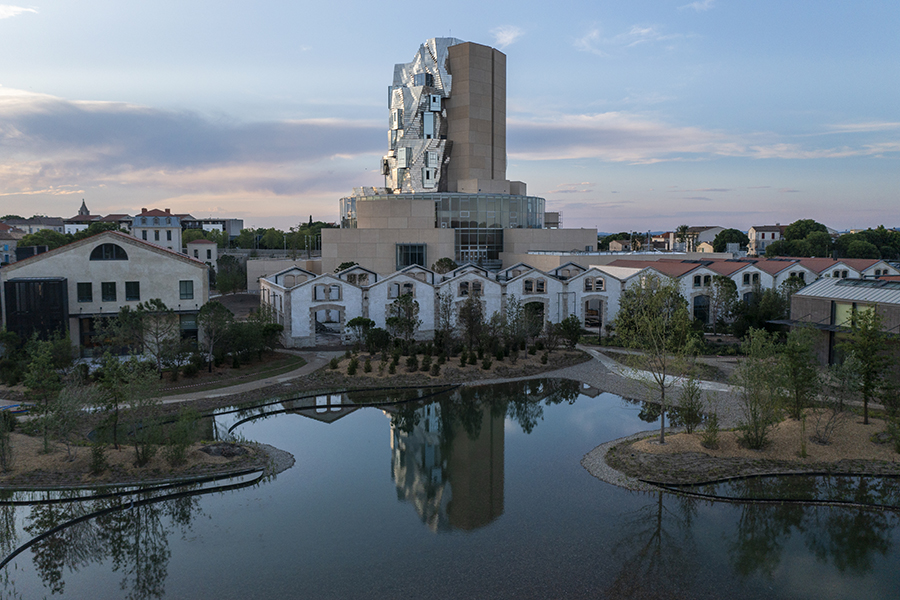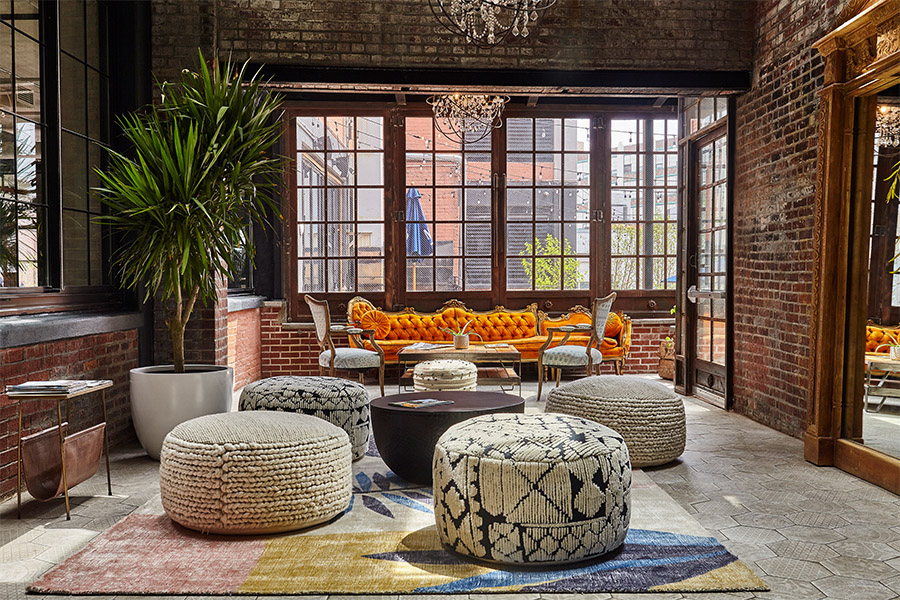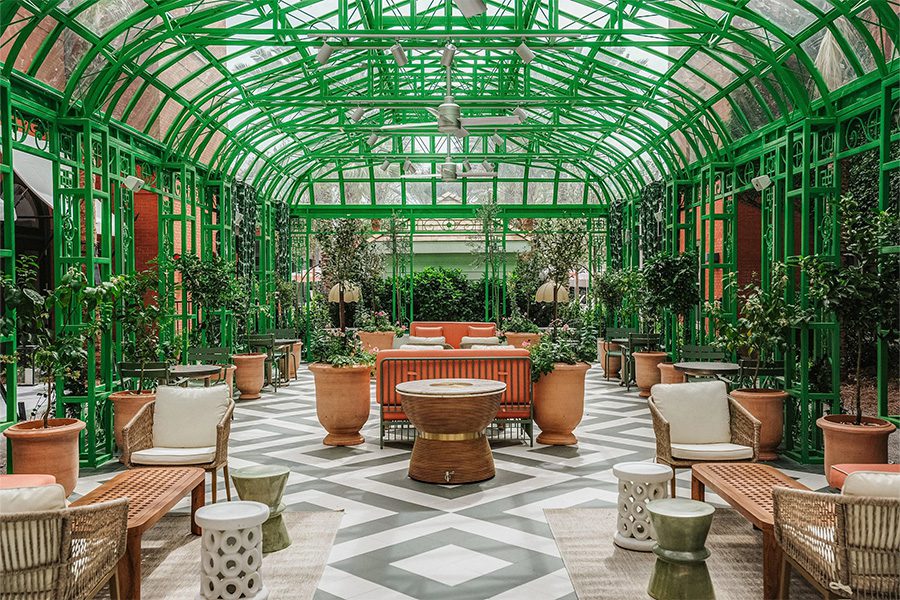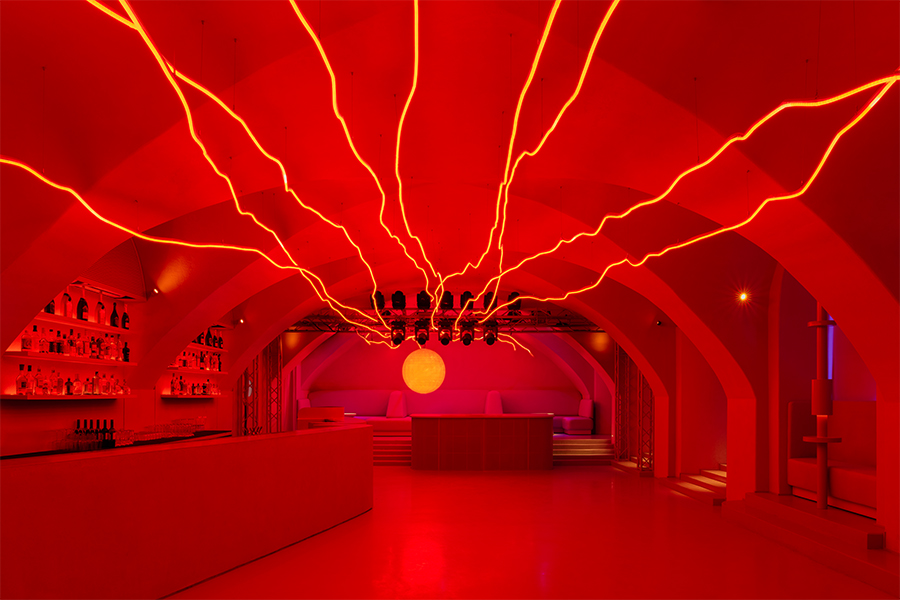Frank Gehry’s Luma Tower hopes for the Bilbao Effect, IKEA Canada marks Pride Month with a series of colorful couches, and mountain resorts see a tourism surge. All that and more in this week’s Five on Friday.
Mountain retreats see a surge in summertime travelers

The Madeline Hotel & Residences in Telluride, Colorado, designed by Rose Ink Workshop. Photo courtesy of Auberge Resorts Collection.
During the peak of the pandemic last summer, many mountain towns in the U.S. were overrun by travelers looking for fresh air and space. This year, those same towns are prepared for an onslaught of summer travelers with new activities and plans to address overcrowding, according to The New York Times, which highlighted a mid-May report from DestiMetrics showing bookings surging for this summer. In fact, resorts are increasingly promoting themselves as warm-weather destinations with activities including zip-lining, alpine slides, ropes courses, and more. It’s all part of their desire to create a less snow-dependent economy. Despite the positives of an influx of travelers, overtourism remains a concern, so much so that towns are giving visitors behavioral expectations that ask them to follow the rules and respect the mountain communities.
A futuristic tower from Frank Gehry opens in Arles

The Luma Tower by Frank Gehry at Fondation Luma, Parc des Ateliers. Photo by Remi Benali.
Legendary architect Frank Gehry lent his creative, otherworldly vision to the Luma Foundation’s creative campus in Arles, France. (The foundation was launched by Swiss art collector Maja Hoffmann in 2004.) The striking 183-foot-tall Luma Tower opened this week and features a shimmering, twisting façade made up of 11,000 stainless steel panels. Set to be home to exhibition galleries, project spaces, and the foundation’s research and archive facilities, the tower rises above the surrounding rooftops from a glass rotunda that references the city’s history as a regional epicenter of Roman architecture, writes Archinect. The building’s irregular vertical form also takes cues from van Gogh’s Starry Night and the nearby Alpilles mountains.
Co-living flourishes in a post-pandemic world

The Collective Paper Factory in Long Island City, New York. Photo courtesy of the Collective.
A recent Curbed article explores the rise of co-living spaces during the last year. Writer Kim Velsey argues that co-living is flourishing because “it fills a void left by the decline of boarding houses, turn-of-the-century single-sex residency hotels, and SROs [single-room occupancy units].” Co-living companies, many of which have merged in the past year, provide something even more desirable than community and amenities; they offer convenience and an attractive pricepoint. While some co-living brands tout themselves as urban utopias, others, like Outpost Club, get straight to the point: “Easy move-in. Easy Living.” By this fall, occupancy percentage for co-living spaces is expected to reach pre-COVID levels of the high 90s.
IKEA Canada unveils LGBTQ-themed sofas

The Progress Love Seat, one of 10 sofas inspired by different Pride flags, for IKEA Canada. Photo courtesy of IKEA Canada.
Created to mark Pride Month, IKEA Canada unveiled a series of 10 Love Seats inspired by the different Pride flags. The sofas were designed by four LGBTQ designers and include pieces that represent transgender, nonbinary, and asexual communities, among others, according to CNN. Take the couch based on the Progress flag, which is covered in hundreds of faux flowers, or the transgender sofa, which marries pink and blue hues reminiscent of the trans flag. In a statement, IKEA described the couches as “a platform to celebrate identity and share stories of love.” Despite the intentions, the reveal of the series has taken on a life of its own on social media.
HD/West Elm student competition winner announced

The winning series, the Bloom collection, by SCAD student Archana Menon.
Hospitality Design announced Archana Menon of Savannah College of Art and Design as the winner of the third annual HD/West Elm Student Product Design Competition. This year, students were tasked with creating a family of lighting products that would work in several environments while evoking West Elm’s sophisticated design ethos. Menon’s winning series, the Bloom collection, includes an integrated dimmable floor lamp with an accordion paper screen and a central brass disc that acts as a touch sensor. “We were struck by the expressiveness of Archana’s lamp and its elegant use of mixed materials,” says Paul Galli, West Elm Contract Furniture’s design director, who judged the competition alongside West Elm president Alex Bellows. In addition to receiving a $5,000 prize, Menon will work with West Elm to produce a selection of her designs. Michela Staker of Utah State University was named the finalist in the competition. Both will be celebrated during the HD Awards ceremony on September 21st at Cipriani South Street in New York. Buy tickets for the event here!
More from HD:
The 17th Annual HD Project Awards Finalists
The 36 Most Anticipated Hotel Openings of 2021
How Paris Is Reinventing Itself as a Green City



